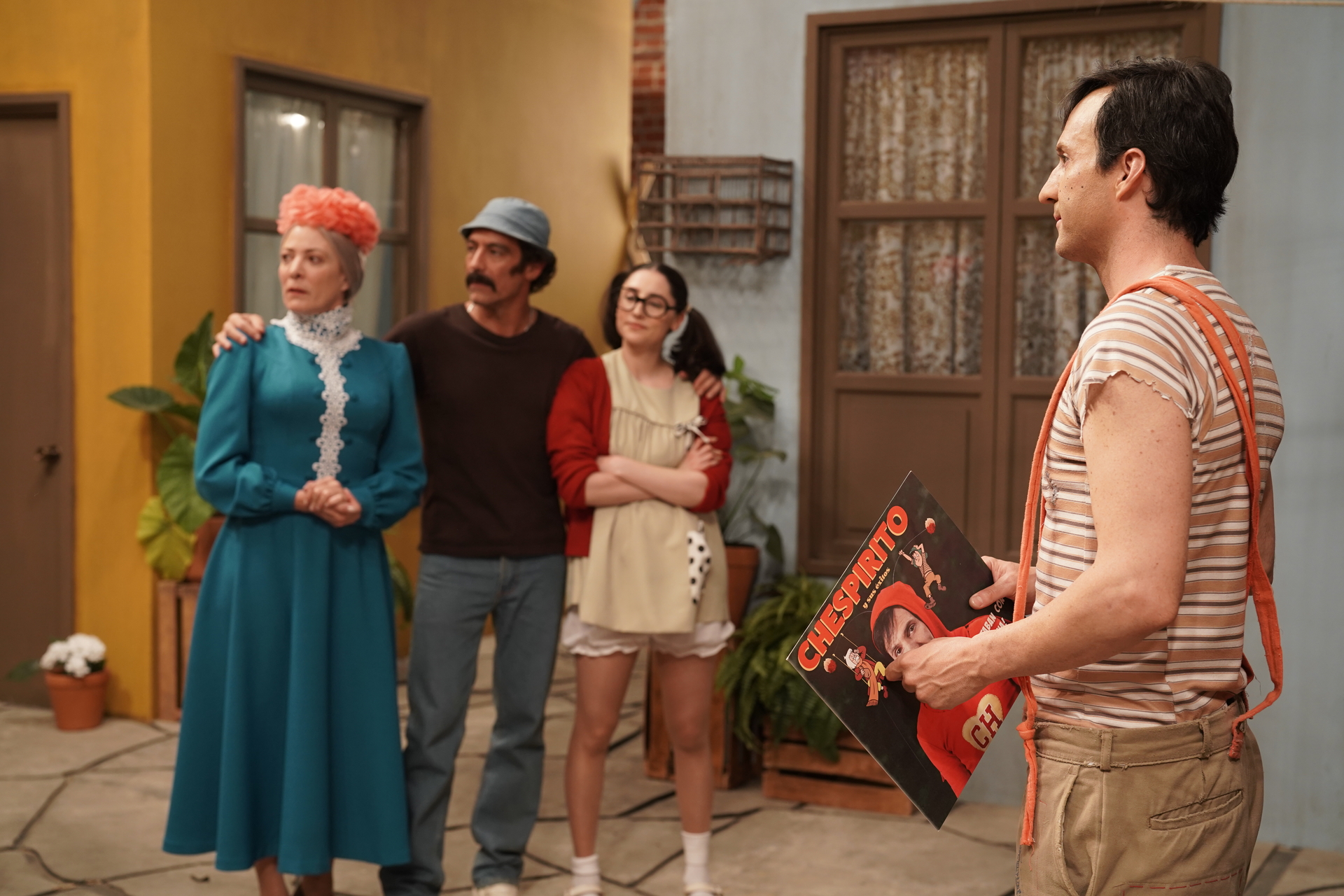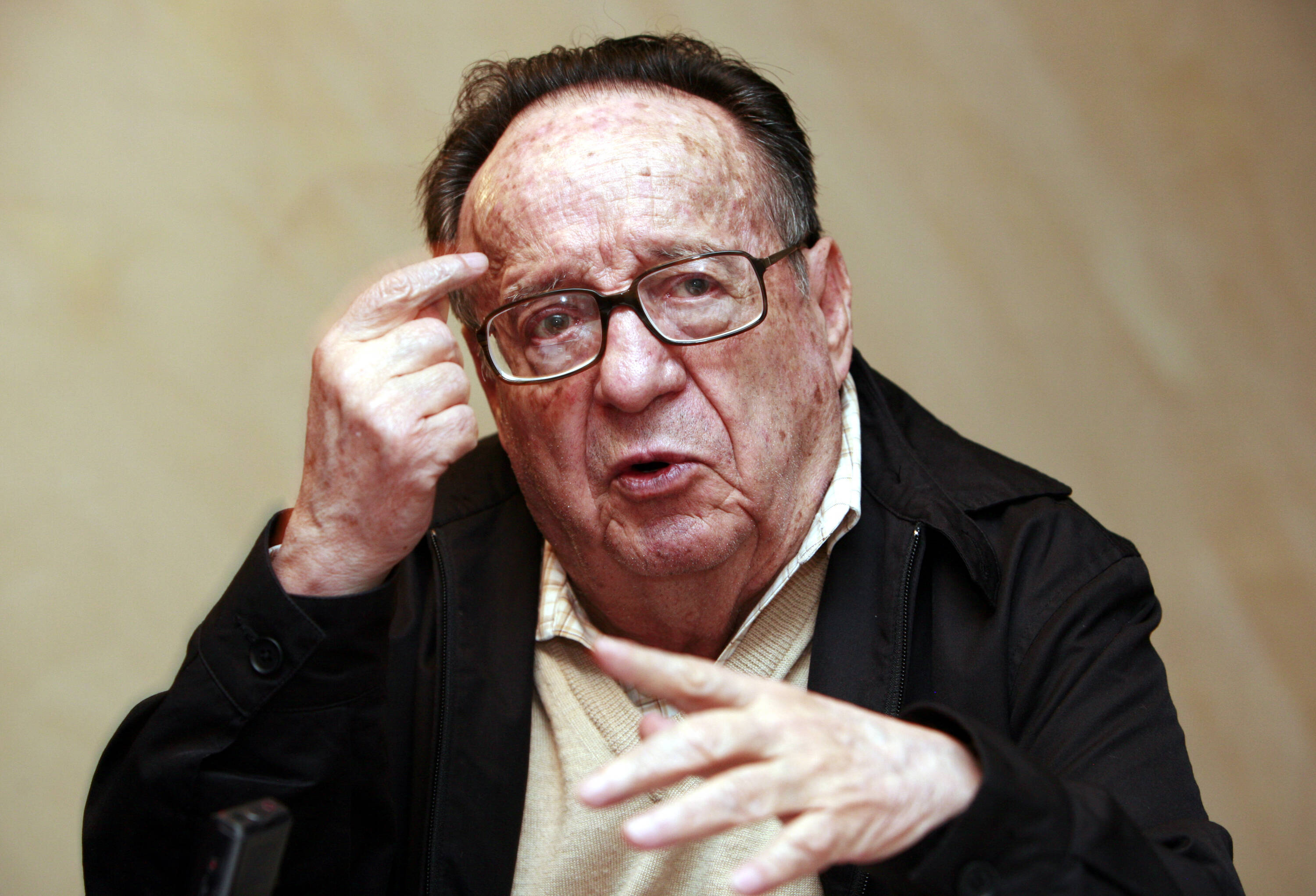The soul behind the humor: 'Sin querer queriendo' revives the memory of Latin American 'Shakespeare'

Chespirito is, without a doubt, one of the most beloved figures on Latin American television. His characters, from Chapulín Colorado to Chavo del 8 , shaped generations and taught a continent that tenderness and humor could coexist in the same neighborhood.
The story goes that in the 1950s, a young Roberto Gómez Bolaños was just beginning to make a name for himself in the world of Mexican entertainment. He worked as a screenwriter and librettist for Agustín Porfirio Delgado, a renowned film director who would soon be captivated by Bolaños's talent. Every line he wrote was a demonstration of wit, fine humor, and sensitivity . One day, after reading one of his scripts, Delgado couldn't contain his admiration and exclaimed enthusiastically, "My God, you're a Shakespeare! Well... a Shakespirito!"
That spontaneous nickname, said amid laughter and admiration, would give rise to one of the most beloved names in the history of Latin American television: Chespirito.
The new biographical series Chespirito, sin querer queriendo , which premiered on June 5 on HBO MAX, tells the story of Gómez Bolaños from his beginnings in the 1950s, his rise in a nascent television industry, and the high price he paid for his desire to be recognized and loved. With an intimate, sensitive, and deeply human perspective, the series explores not only the artist, but also the man behind the icon.

The new biographical series "Chespirito, sin querer queriendo" is streaming on HBO Max. Photo: HBO Max
From Buenos Aires (Argentina), two of the protagonists of this story, Pablo Cruz Guerrero , who plays Chespirito, and Paola Montes de Oca , who gives life to Chilindrina, talked about the series.
I imagine you had some idea of who Roberto Gómez Bolaños was. What did you learn or discover about him through this series? Paola Montes de Oca (PMO): That he was literally a genius. A genius who created something impressive, who united so many generations, so many countries, through his comedy and humor. That's what I discovered. But I don't think I realized the impact he had throughout Latin America until we started filming this series. Now I understand, and it impresses me more every day.
He was literally a genius. A genius who created something breathtaking, who united so many generations, so many countries, through his comedy and humor.
Pablo Cruz Guerrero (PCG): I discovered the closeness he has with the family nucleus, especially in Spanish- and Portuguese-speaking countries like Brazil and Portugal, and even in other parts of Europe and Asia. I saw him as a talented comedian with a great legacy, but thanks to this series, I discovered the affection and emotional connection he had with homes, with family. That moved me deeply.

Roberto Gómez Bolaños, Mexican screenwriter and comedian. Photo: Claudia Rubio. EL Tiempo Archive.
PMO: I think it's about discovering his humanity. At the end of the day, we're all human, and we can identify with him because we go through similar emotions and situations. I was surprised to see that he wasn't just a genius who wrote incredibly, but also a deeply human person.
PCG: What surprised me most were the ratings. Today, when a hit series closes a season with 50 or 60 million viewers, it's already a phenomenon. And he had over 300 million viewers weekly 50 years ago! That's something you don't see anymore. It was one of the most impressive data points I discovered.
Playing real characters or those with living relatives carries a different weight. How did you handle that burden? PCG: Yes, it has a different impact, but based on our work as interpreters, the approach shouldn't be any different. It's about understanding the story thoroughly, empathizing with its circumstances, whatever they may be, and connecting with them from our own experience. Of course, there's the pressure of knowing it's been seen by 300 million people, but in the end, whether it's seen by millions or no one, the process must be the same: total commitment and dedication.
PMO: Now I'm starting to see him as Pablo, but at first I was very nervous. I was scared. I had so many mixed emotions. It was the biggest commitment of my life, a challenge I didn't know if I could fulfill. But thanks to the process, getting to know my teammates and sharing with them, it became easier. The Chespirito universe has that magic that unites us. It brought us together so much as a group.
So there were many fears... PCG: Of course... I remember that two or three weeks before we started recording, we had a group reading. That very day, the only one we'd all be there, I woke up without a voice, with the flu, all congested. I felt very insecure. But those moments, if you give them time, lead you to other discoveries.
PMO: Yes, there was a lot of pressure. But at the end of the day, we worked to do our best with our performance and achieve an empathetic connection with the audience, who loves Chespirito so much.
What was your relationship with Chespirito before this series? PCG: As a Mexican, I knew about him since I was born. He was present everywhere: in our culture, in phrases and sayings. But my relationship was distant until two years before the series, when I accidentally began to connect with his content. So when I got the call to audition, it was a complete surprise.
PMO: I'd never told this before, but when I was four, my mom dressed me up as Chavo del 8 for a festival. That was my first exposure. That's when I understood who he was. Later, when I came home from school, I would sometimes watch him while eating. I didn't have much contact with him because I was already one of the last generations to watch him on air, but I did enjoy it a bit.
Many people think that humor on television is superficial or easy, but this series shows the opposite: the intelligence and precision behind the humor. PCG: Exactly. Well-crafted humor is never easy. It always has a degree of depth. Provoking laughter, which is often an involuntary stimulus, requires striking a chord. That requires a certain intellect, knowing what to say and how. And the fact that Gómez Bolaños and his team have managed to make so many people laugh for so many years demonstrates that they have found a very deep and specific language.
PMO: Plus, it's very theatrical, very physical. It's a constant energy. It's not easy. You have to maintain a rhythm, a certain energy. It's exhausting.
PCG: And as actors, it also happens that we write something we think is great, and then, when you put it into action, it doesn't make you laugh. You have to test, adjust. It's a huge degree of complexity.
What did you learn about the craft making this series? PCG: I learned how wonderful it is to be immersed in all aspects of storytelling. Roberto considered himself a writer first, but he also acted, directed, produced, composed music, and dabbled in special effects. He had an immense passion for experimenting to bring joy.
PMO: I learned to be empathetic with the entire team. There are so many people working on this. It made me appreciate everyone's work, not just ours in front of the camera.
Tackling such a beloved character is a challenge. Sometimes productions don't take kindly to it due to fear or expectations. Did this scare you? PMO: Yes, a little. But I'm letting it out now. It's a great product. I think it's a great series, made with care, love, and honor for a great master. I'm sure you'll like it.
PCG: I've let go of that fear too. After watching the first episode, I'm already convinced it's going to be cool.
To finish: three words to define Unintentionally, wantingly. PMO: Human, endearing, emotional.
PCG: Fun, powerful, empathetic.
eltiempo





%3Aformat(jpg)%3Aquality(99)%3Awatermark(f.elconfidencial.com%2Ffile%2Fbae%2Feea%2Ffde%2Fbaeeeafde1b3229287b0c008f7602058.png%2C0%2C275%2C1)%2Ff.elconfidencial.com%2Foriginal%2Fdaf%2F8be%2Ff59%2Fdaf8bef59d7203bca091781ca9b15c99.jpg&w=3840&q=100)